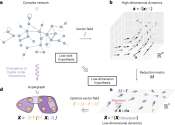Carbon trading solutions for declining coral reef management tested with game theory
Climate change in the media is often represented through evocative images of polar bears on small floating ice rafts and bleached corals—stark white skeletons in the wasteland of a once-thriving marine community. Besides ...









